Africa and the pandemic panic: Facts not fear
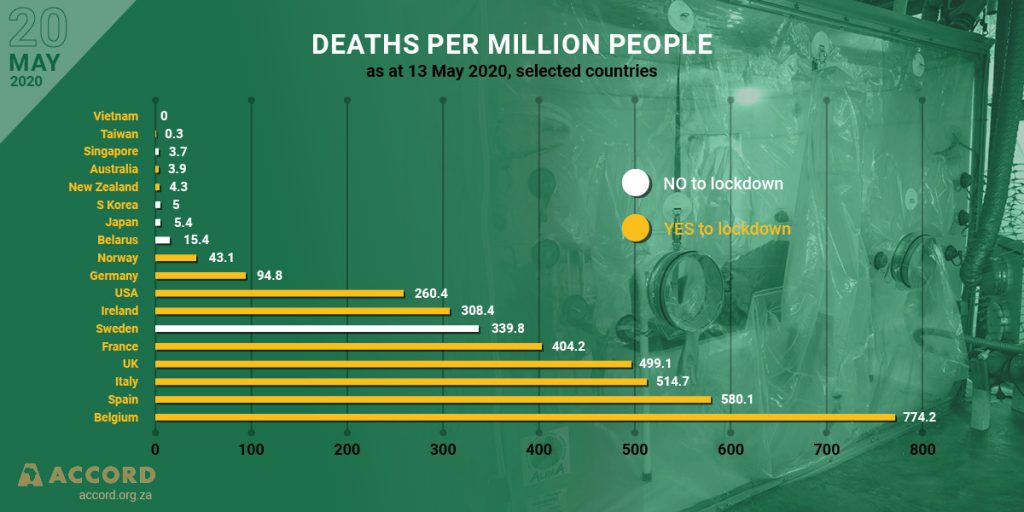
Africa is at risk of getting the worst of both worlds: failure to check the epidemic and failure to check economic collapse. Why?
COVID-19 provides Africa with an opportunity to rethink the role of the state in economic policy
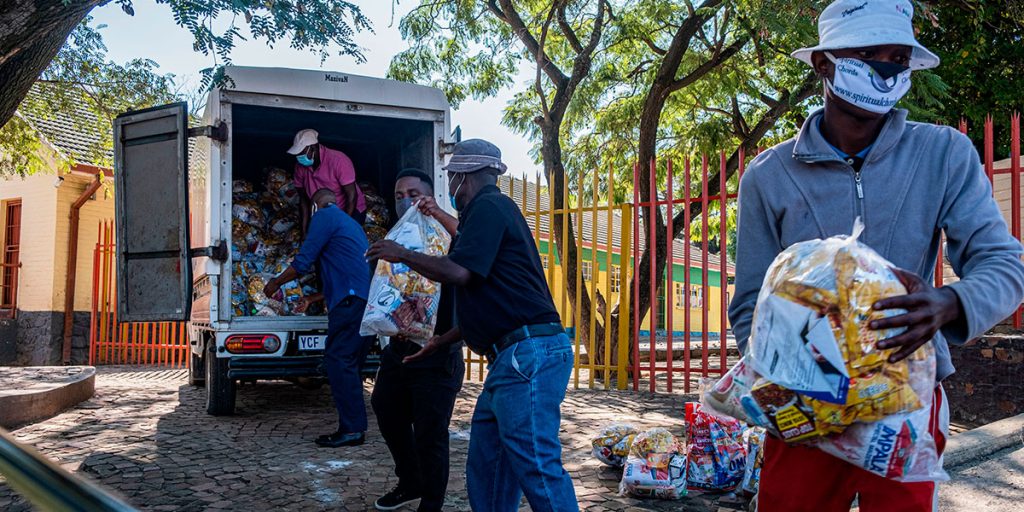
The corona virus has demonstrated that we can do many things that seemed impossible before. We are now allowed to think it is possible to contemplate a different set of rules and norms. There is a dramatic return to Keynesian policies by those who once kept at arm’s length what they considered a sin: to recognize public services as public goods that are to be properly funded. Treating them as investments in social capital instead of as liabilities. There is now a recognition that the key role of the state is back.
Africa’s economic resilience and the impact of COVID-19
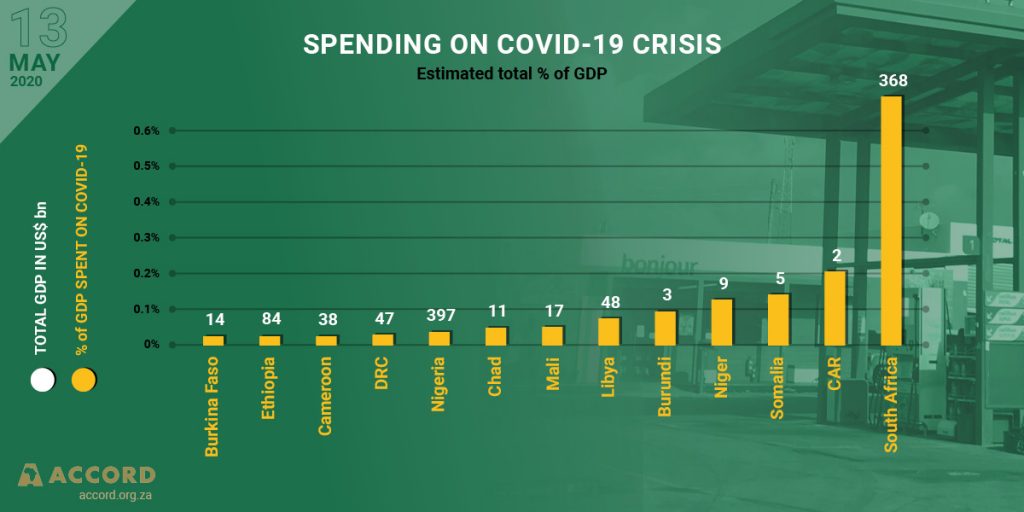
While COVID-19 is a global challenge, Africa is especially vulnerable to the associated economic disruptions.
Assessing the impact of COVID-19 on young people
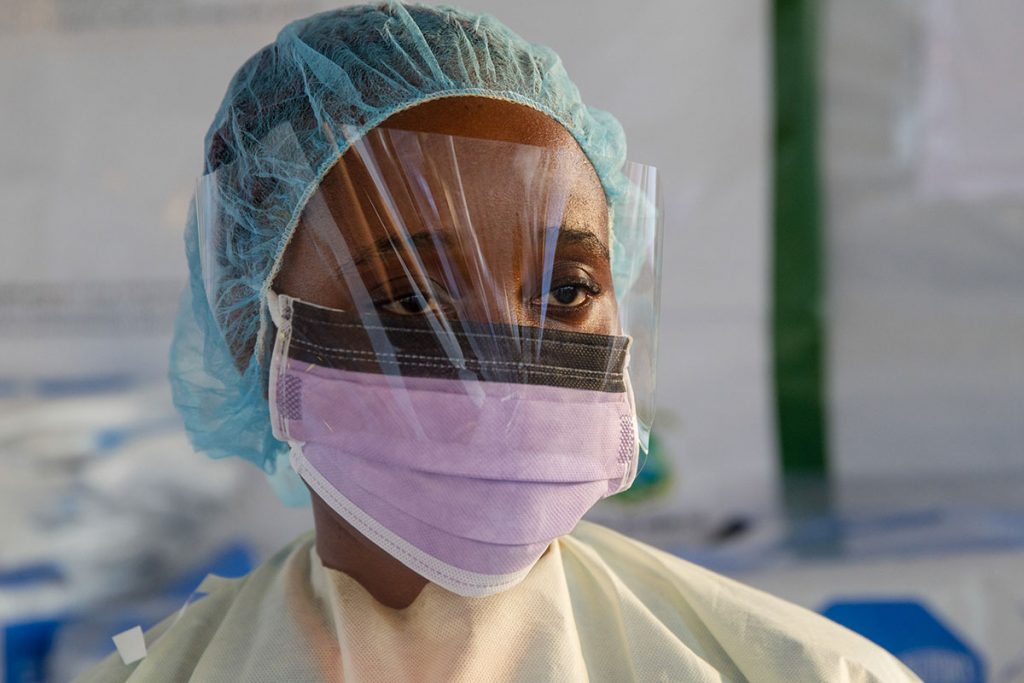
In addition to unemployment and labour market vulnerabilities, some social protection mechanisms and economic policy responses implemented in the context of the COVID-19 crisis do not seem to consider young people as a specific vulnerable category.
An opportunity to secure women and girls’ protection from violence?
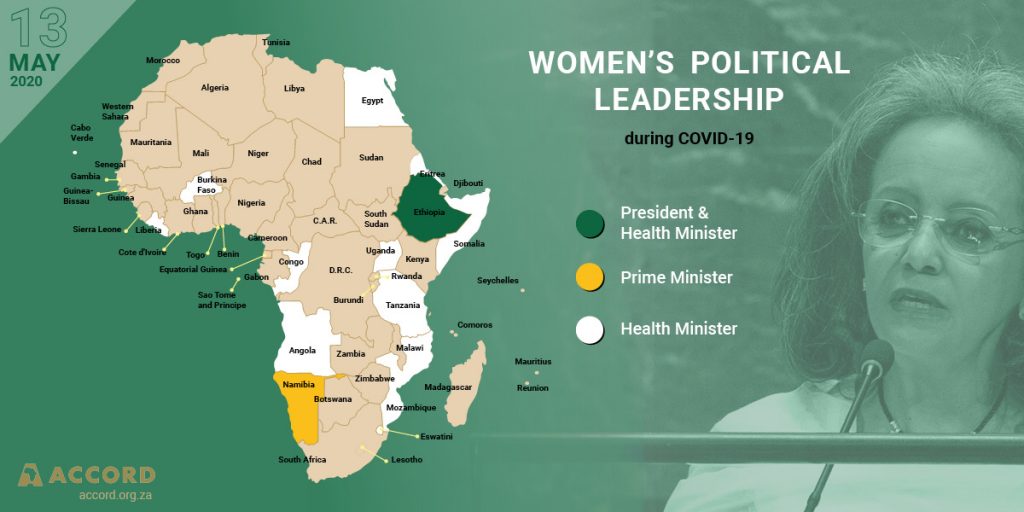
National lockdowns, implemented by governments around the world, to curb the spread of COVID-19 has had the unintended consequence of contributing to an increase in violence against women and girls.
COVID-19 reminds us that we are one global society
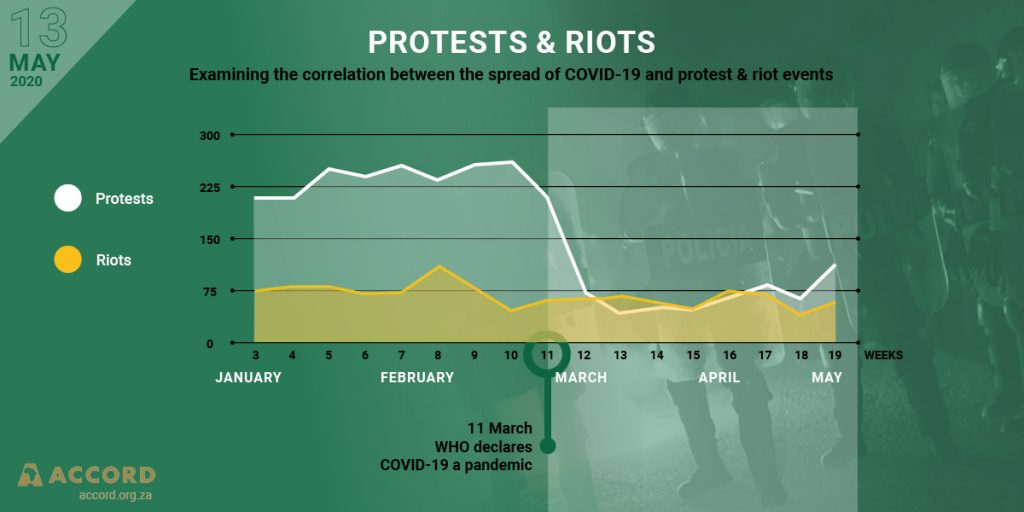
COVID-19 should alert us to the reality that developing a vaccine cannot be a national project. The pandemic is a call for global cooperation and solidarity.
The impact of COVID-19 on peace operations in Africa
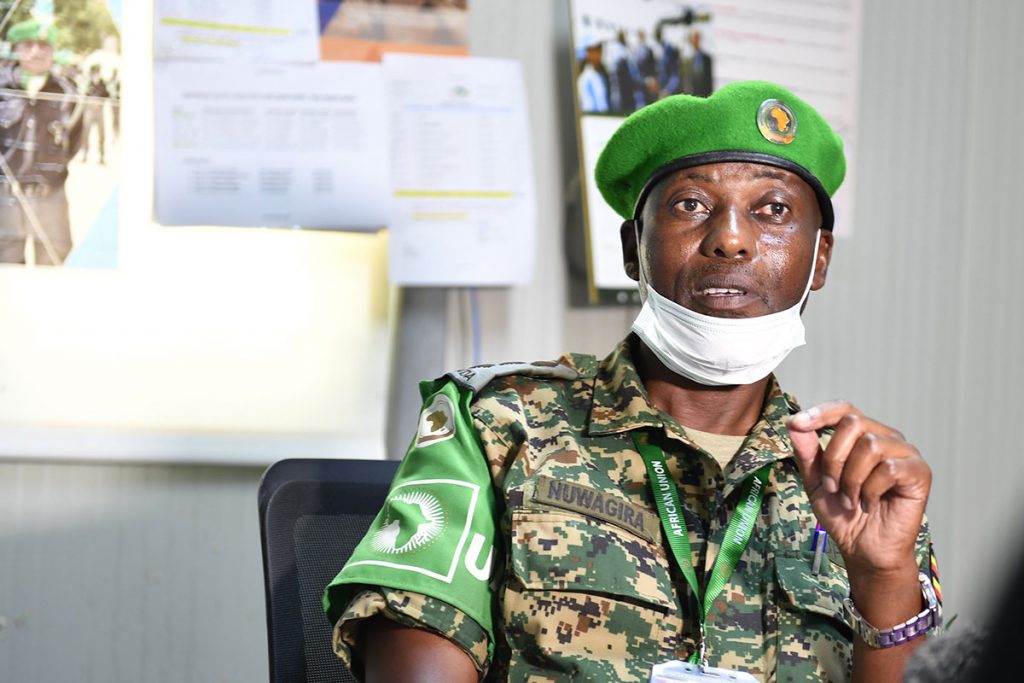
The COVID-19 pandemic has significantly disrupted peace operations. In the short-term activities have been reduced to the most critical, rotations have been frozen, and most staff are working remotely. Most of the missions have adapted remarkably well. However, even more changes are likely in the medium term when the global economic recession, that is expected to follow in the wake of the virus may force peace operations to drastically contract in size and scope.
COVID-19 containment measures: Opportunities for Africa?
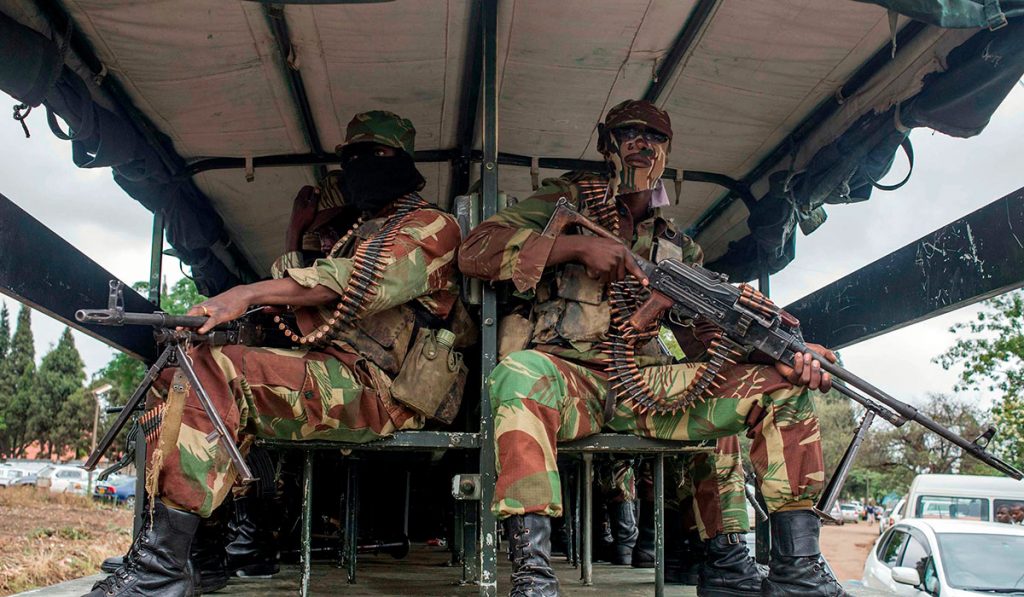
The primary goal in the fight against COVID-19 is to prevent the spread of the virus and to care for those infected. As a result, African countries have acted faster than any region with a comparable rate of infection, and in the process thousands of lives have been saved.
The link between food (in)security, peace and stability and COVID-19
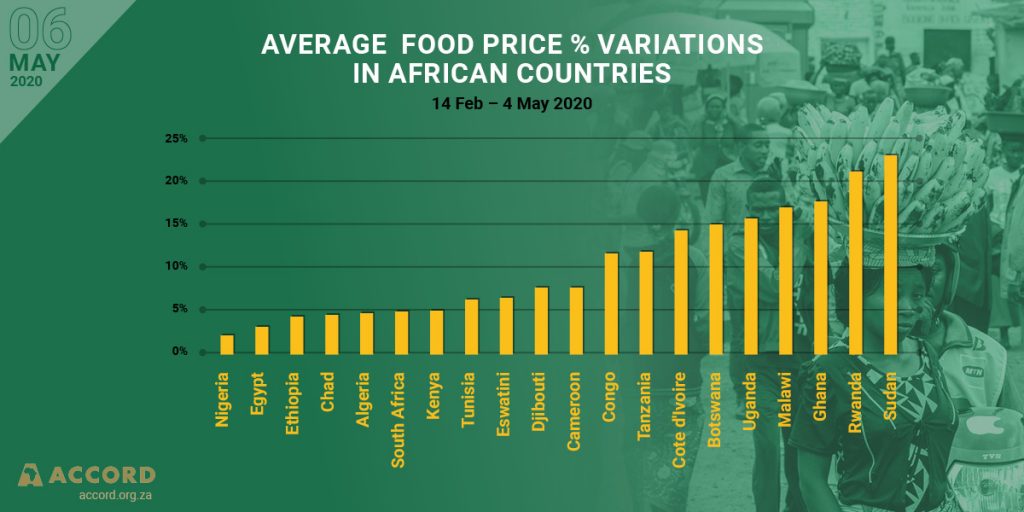
COVID-19 may have started as a public health emergency, but at this stage, the measures taken to contain the crisis have developed into an economic crisis, that has more of an impact on people’s livelihoods than the virus itself.
The impact of COVID-19 on political tensions and conflict in Africa
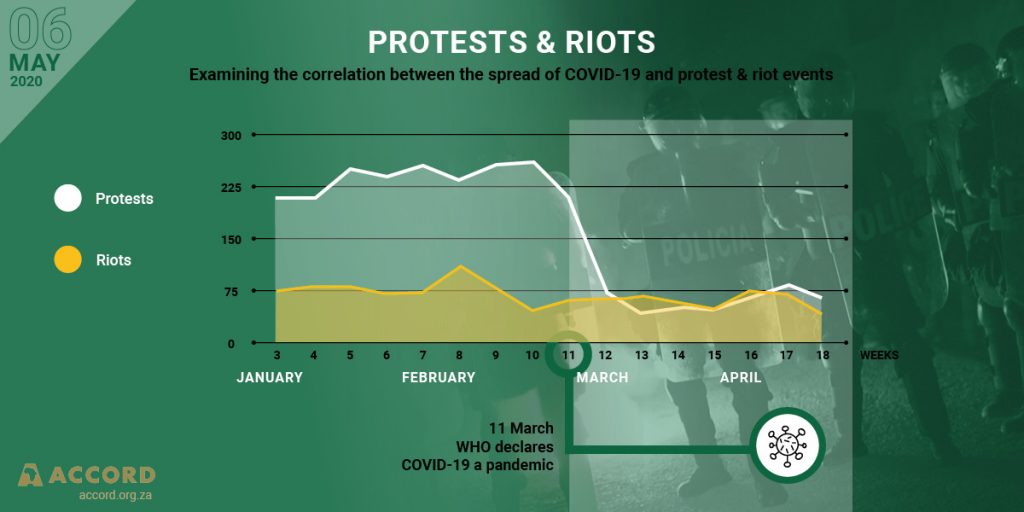
Taken together, it seems as if some of the measures and responses to the COVID-19 pandemic are increasing political tensions and heightening the risk for social unrest and violent conflict.
